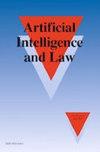Human-Algorithm Interaction: Algorithmic Pricing in Hybrid Laboratory Markets
IF 3.1
2区 社会学
Q2 COMPUTER SCIENCE, ARTIFICIAL INTELLIGENCE
引用次数: 5
Abstract
This paper investigates pricing in laboratory markets when human players interact with an algorithm. We compare the degree of competition when exclusively humans interact to the case of one firm delegating its decisions to an algorithm. We further vary whether participants know about the presence of the algorithm. When one of three firms in a market is an algorithm, we observe significantly higher prices compared to humanonly markets. Firms employing an algorithm earn significantly less profit than their rivals. For four-firm markets, we find no significant differences. (Un)certainty about the actual presence of an algorithm does not significantly affect collusion, although humans seem to perceive algorithms as more disruptive.人-算法交互:混合实验室市场中的算法定价
本文研究了人类玩家与算法交互时实验室市场的定价。我们将纯人类互动时的竞争程度与一家公司将其决策委托给算法的情况进行比较。我们进一步改变参与者是否知道算法的存在。当市场中的三家公司中有一家是算法时,我们观察到的价格明显高于只有人类的市场。采用算法的公司比他们的竞争对手赚取的利润少得多。对于四家公司的市场,我们没有发现显著差异。对算法实际存在的不确定性不会显著影响共谋,尽管人类似乎认为算法更具破坏性。
本文章由计算机程序翻译,如有差异,请以英文原文为准。
求助全文
约1分钟内获得全文
求助全文
来源期刊

Artificial Intelligence and Law
Multiple-
CiteScore
9.50
自引率
26.80%
发文量
33
期刊介绍:
Artificial Intelligence and Law is an international forum for the dissemination of original interdisciplinary research in the following areas: Theoretical or empirical studies in artificial intelligence (AI), cognitive psychology, jurisprudence, linguistics, or philosophy which address the development of formal or computational models of legal knowledge, reasoning, and decision making. In-depth studies of innovative artificial intelligence systems that are being used in the legal domain. Studies which address the legal, ethical and social implications of the field of Artificial Intelligence and Law.
Topics of interest include, but are not limited to, the following: Computational models of legal reasoning and decision making; judgmental reasoning, adversarial reasoning, case-based reasoning, deontic reasoning, and normative reasoning. Formal representation of legal knowledge: deontic notions, normative
modalities, rights, factors, values, rules. Jurisprudential theories of legal reasoning. Specialized logics for law. Psychological and linguistic studies concerning legal reasoning. Legal expert systems; statutory systems, legal practice systems, predictive systems, and normative systems. AI and law support for legislative drafting, judicial decision-making, and
public administration. Intelligent processing of legal documents; conceptual retrieval of cases and statutes, automatic text understanding, intelligent document assembly systems, hypertext, and semantic markup of legal documents. Intelligent processing of legal information on the World Wide Web, legal ontologies, automated intelligent legal agents, electronic legal institutions, computational models of legal texts. Ramifications for AI and Law in e-Commerce, automatic contracting and negotiation, digital rights management, and automated dispute resolution. Ramifications for AI and Law in e-governance, e-government, e-Democracy, and knowledge-based systems supporting public services, public dialogue and mediation. Intelligent computer-assisted instructional systems in law or ethics. Evaluation and auditing techniques for legal AI systems. Systemic problems in the construction and delivery of legal AI systems. Impact of AI on the law and legal institutions. Ethical issues concerning legal AI systems. In addition to original research contributions, the Journal will include a Book Review section, a series of Technology Reports describing existing and emerging products, applications and technologies, and a Research Notes section of occasional essays posing interesting and timely research challenges for the field of Artificial Intelligence and Law. Financial support for the Journal of Artificial Intelligence and Law is provided by the University of Pittsburgh School of Law.
 求助内容:
求助内容: 应助结果提醒方式:
应助结果提醒方式:


